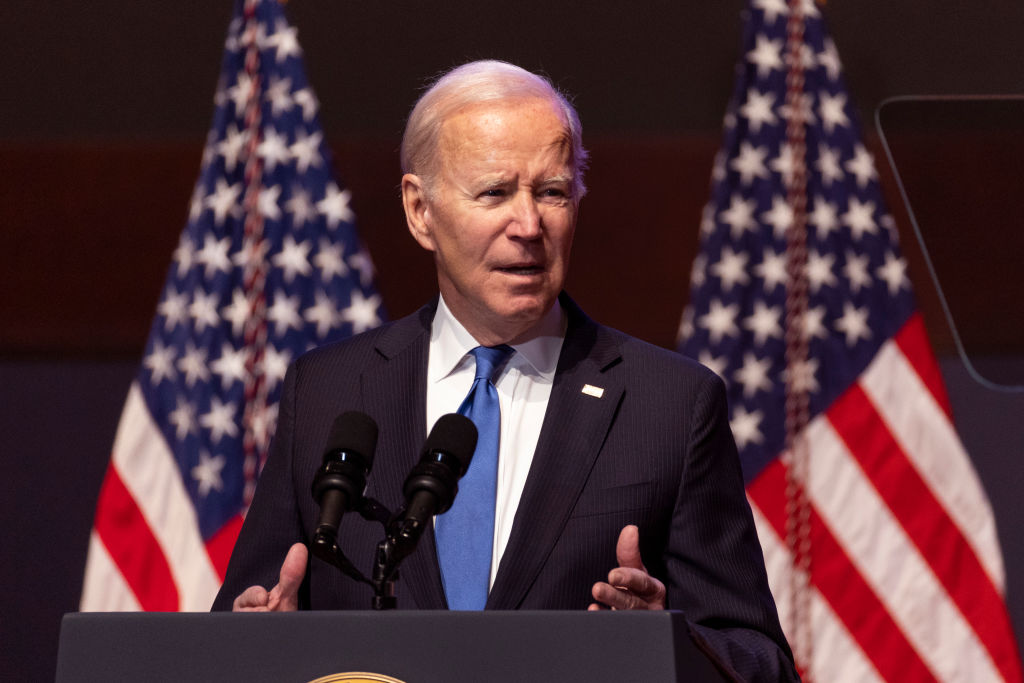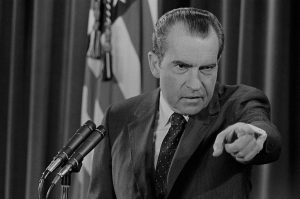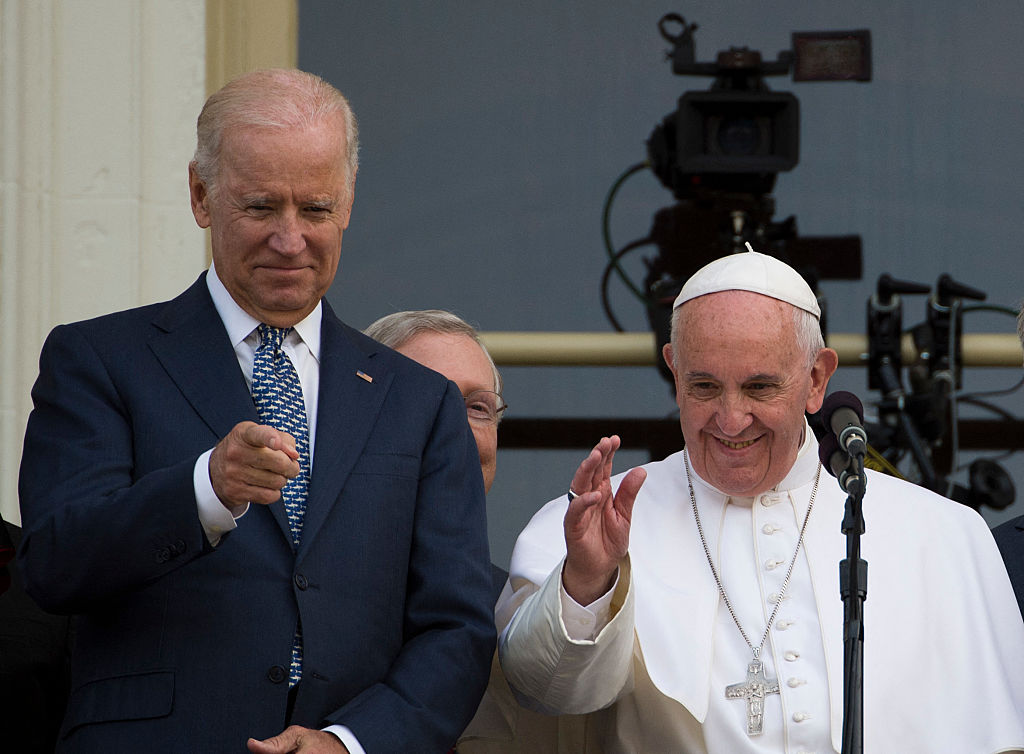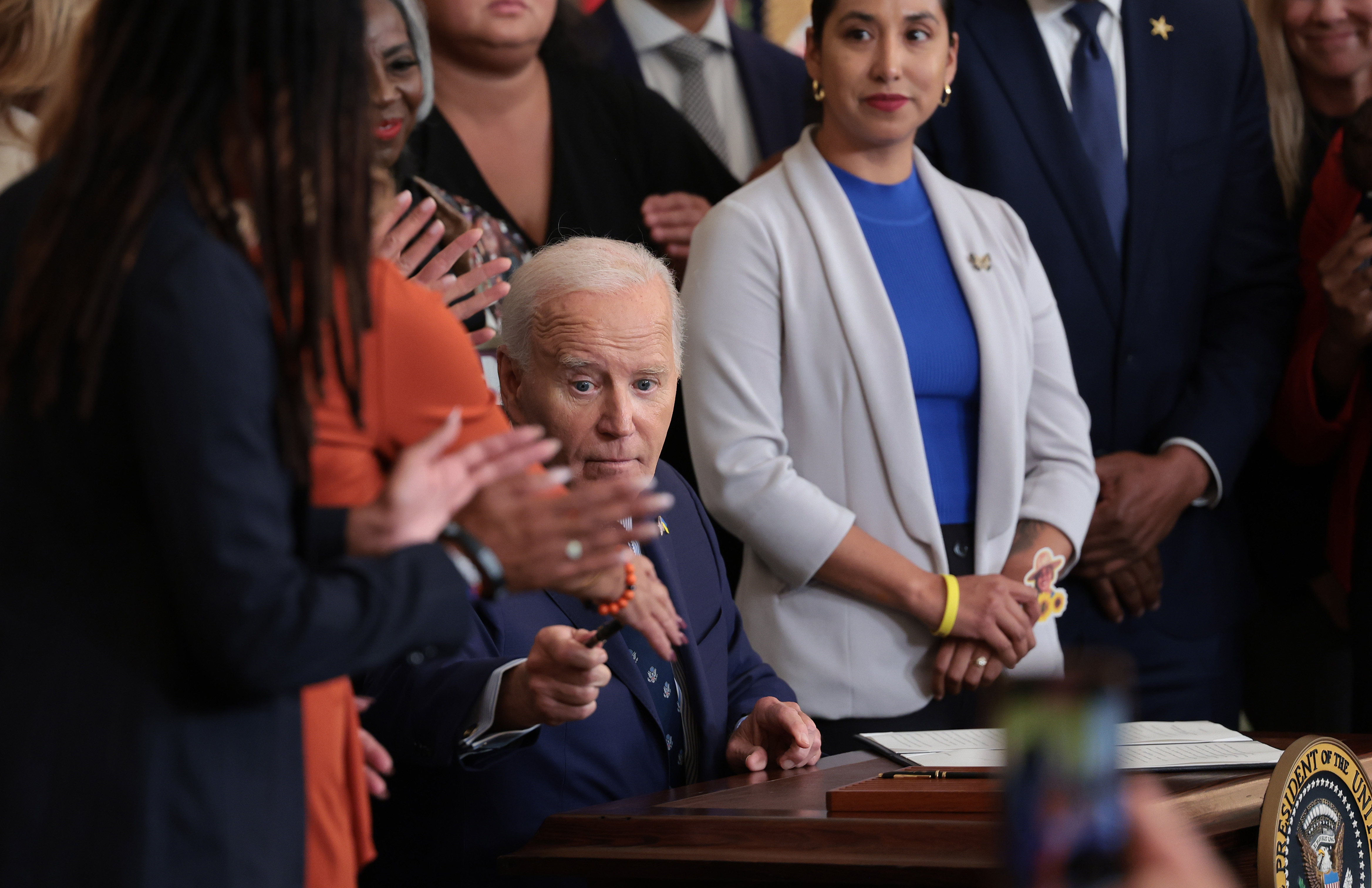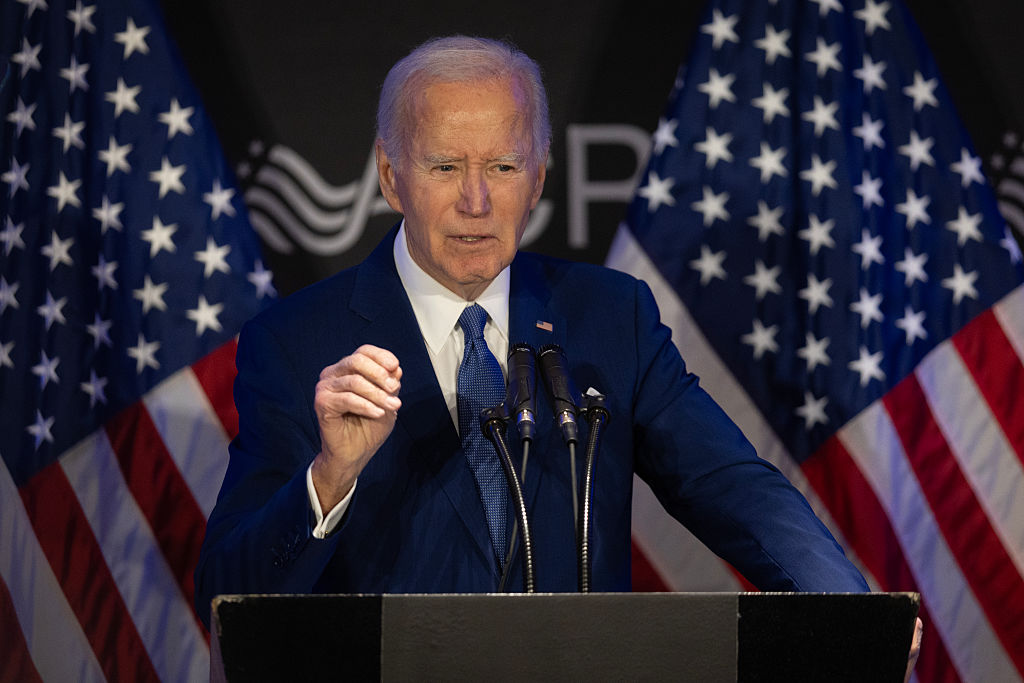Looking back on the classified docudrama that brought down the Biden administration, it is still not easy to identify the exact moment when the official narrative began to unravel and the political establishment understood that Biden had to go. With the wisdom of hindsight, we can see that the New York Post breaking the story about Hunter Biden’s laptop was an important alarm bell. That happened only weeks before the 2020 election, so it was a serious breach.
At first, it seemed as if the threat had been contained. Elite squadrons of the regime’s damage-control department swung into action. They instantly de-platformed the Post, the nation’s oldest newspaper, shutting down its social media accounts for weeks. Then they sprayed heavy-duty narrative-retardant over the story, suborning fifty intelligence specialists to lie about the story being “Russian disinformation.” There was an acrid aroma hanging in the air but it seemed that the emergency had been contained.
But then came Miranda Devine’s meticulously researched book Laptop from Hell: Hunter Biden, Big Tech, and the Dirty Secrets the President Tried to Hide. In terms of substance, it blew the cover off the cover-up. In terms of politics, however, the juggernaut of the regime’s static-dispensers was at first able to drown out the essential truths of Devine’s exposé, above all the truth that Hunter Biden was granted a lucrative place on the board of the Ukrainian energy company Burisma in exchange for access to his father, then the vice president. Hunter got some $83,000 per month for his services, Ukraine got US loans worth at least $1 billion, and Joe, the “Big Guy,” may have gotten 10 percent of whatever Hunter and his partners were able to hoover up from separate deals with the Chinese and Russians.
Somehow, although this news was in circulation, it could not get the traction it needed, even after it emerged that Hunter’s Ukraine stipend was halved after his father left the vice presidency. But then story hour moved on to the multivolume epic tale of the Biden Classified Docs. Once again, the smokejumpers were called in, and at first they seemed successful in tamping down the fires of the new narrative. The combination of intermittent impersonations of Sergeant Schultz by the president — I know nothing, nothing! — along with ceaseless recitations of the mantra “We’re cooperating! We’re cooperating!” at first kept the waters of dissolution at bay.
But in the end there were just too many separate caches, trunks, folders and “items” of classified documents. There were too many questions going unanswered. Worse, in time, there were too many questions for which the answers were both obvious and incriminating. Who placed the documents in Joe Biden’s office, in his garage, in various spots around his house? Was it a literary Easter Egg hunt? What was the role of Biden’s lawyers in finding and revealing the existence of classified material all about the Biden manse? What role did the FBI play? Did Hunter Biden avail himself of any classified material back in 2013-16 when he was lining up the gig with Burisma?
In a column published in late January, Miranda Devine noted “that three-year period corresponds to the most frenetic influence-peddling activity overseas by [Joe Biden’s] son Hunter and brother Jim Biden, who made millions of dollars from shady interests in Ukraine, China, Russia and elsewhere.” She pointed out the obvious: “how much more valuable their product would be if they had access to classified documents.”
Not long after that, people began quoting that famous exchange from Hemingway’s novel The Sun Also Rises: “‘How did you go bankrupt?’ Bill asked. ‘Two ways,’ Mike said. ‘Gradually, then suddenly.’”
It was in the spring of 2023 that the Central Committee decided that enough was enough. What happened next would have seemed incredible just a few short months before, but reality often finds a way of exceeding fiction. Elon Musk, having previously released tantalizing tidbits from the Twitter archives, opened up everything, shocking the public and making things impossible for the FBI. The Bureau was decapitated, its Washington headquarters shuttered, its field offices brought under the jurisdictions of their local police authorities.
Joe Biden’s former chief of staff Ron Klain headed the deputation that convinced the president that invoking the Twenty-Fifth Amendment was being contemplated by Congress. Other congressmen wanted to bypass that expedient and refer the president to the Department of Justice for criminal charges. There was no response from Merrick Garland, then the attorney general, when Biden cut the Gordian knot and announced he was returning to the basement of his Wilmington, Delaware, home, the site of so many happy memories from the 2020 election campaign.
Kamala Harris was awarded the Nobel Peace Prize, discovered the winning ticket for the Publishers Clearing House sweepstakes in her mailbox, and found herself appointed to the boards of a dozen of the biggest companies on the NASDAQ. She then decided to resign from the teetering Biden administration and retire to spend more time with her family. Constitutional experts were anguished but finally decided that Kevin McCarthy, speaker of the House, was next in line to serve as the country’s chief magistrate. He took office in June of 2023, having promised publicly to step down in January 2025 when a newly elected president would take office.
Everywhere one went people were shaking their heads in disbelief and repeating that old but apocryphal Chinese curse: may you live in interesting times.
This article was originally published in The Spectator’s March 2023 World edition.



